Vietnam deserves to be an active and responsible member of United Nations Human Rights Council
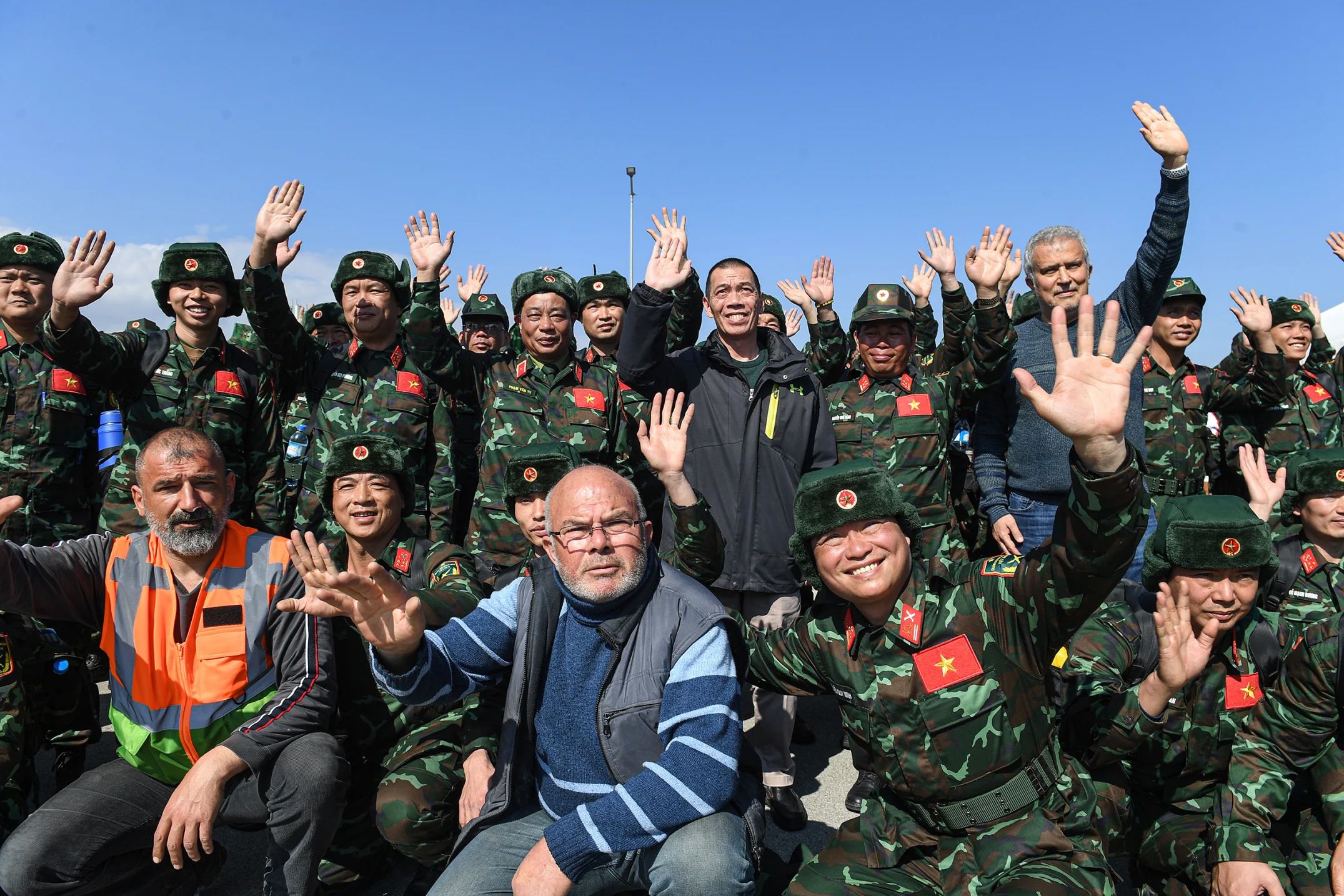
Concerning activities to protect and promote human rights around the world, as a member of the United Nations, Vietnam always upholds a sense of responsibility and is ready to exchange and cooperate with the human rights agency under the world’s largest intergovernmental organisation to work out the most optimal solutions.
The fact that Vietnam won the high trust and was elected as one of the 14 members of the United Nations Human Rights Council (UNHRC) for the 2014-2016 and 2023-2025 terms has affirmed the confidence of countries around the world and shown the importance attached by international friends to Vietnam's position in activities to promote and ensure human rights on a global scale.
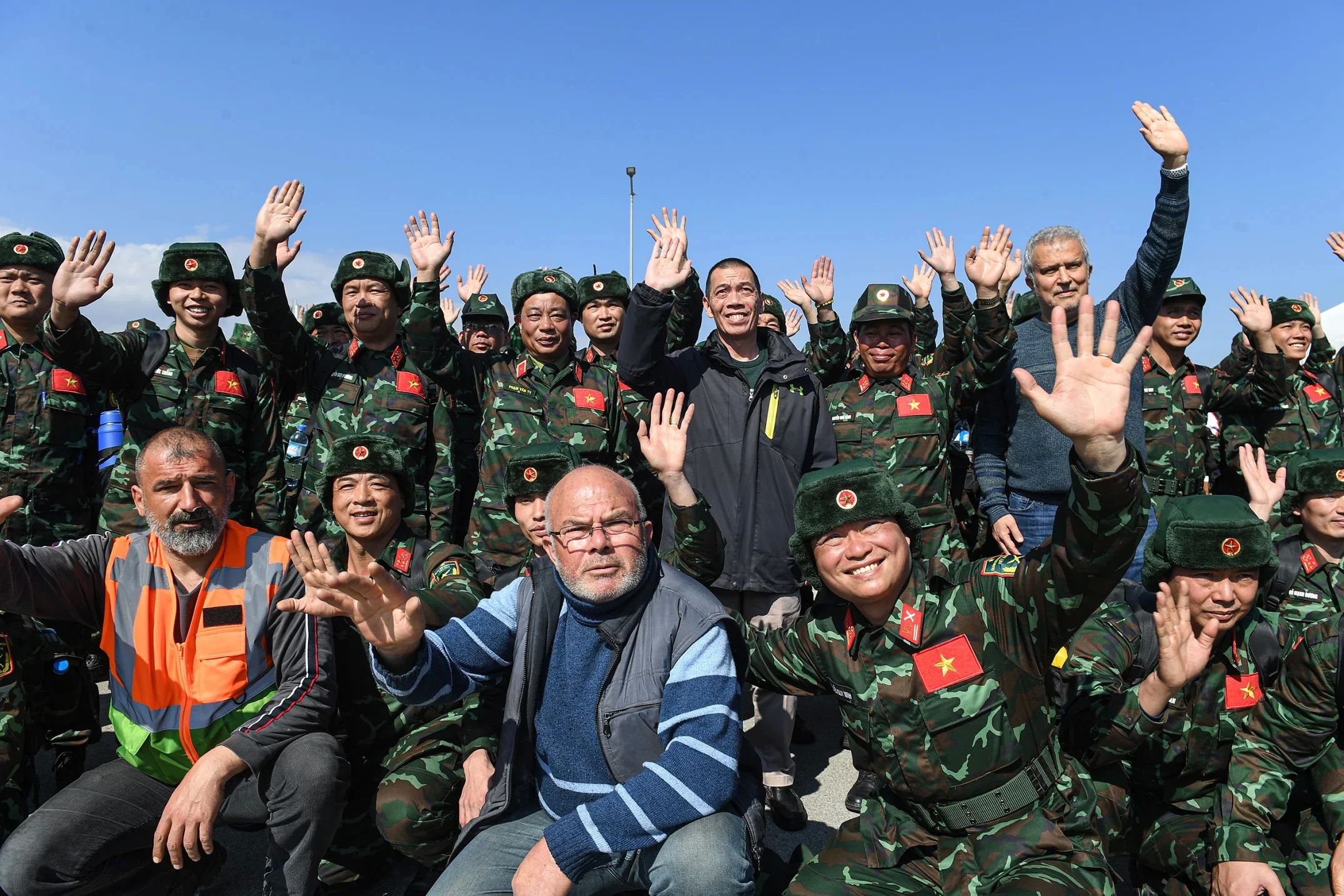
The birth and working mechanism of the United Nations Human Rights Council
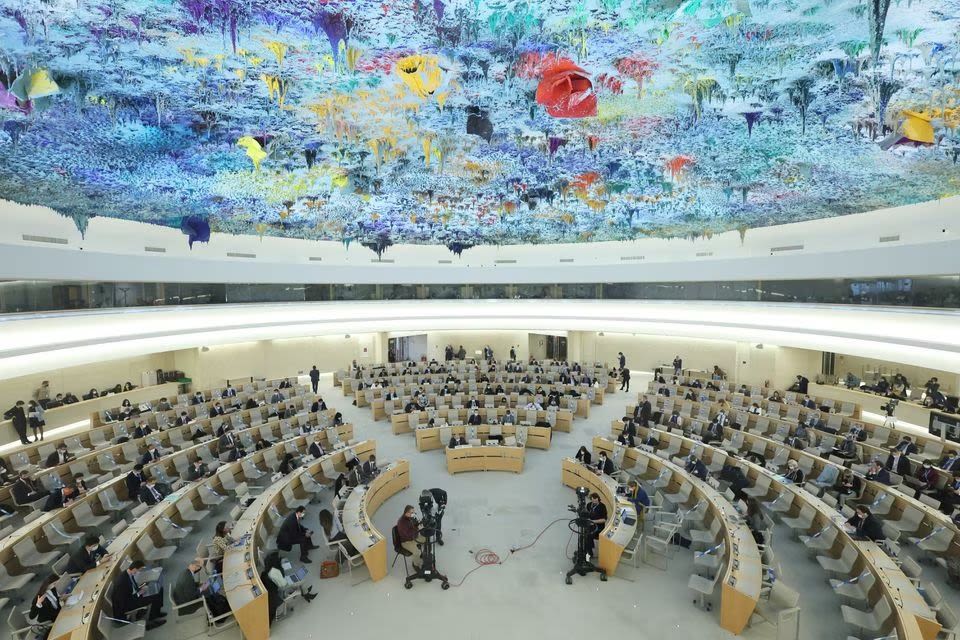
According to the United Nations Charter, the protection and promotion of human rights are identified as one of the top tasks undertaken by all of its six main bodies. Among them, the General Assembly has the highest responsibility in the field of human rights, especially in setting international standards on human rights; formulating and administering programmes on human rights; building UN human rights agencies and dealing with human rights violations.
In addition, the Economic and Social Council (ECOSOC) is in charge of building the apparatus of specialised committees for this agency and the General Assembly in human rights activities, with the most prominent being the United Nations Commission on Human Rights, the predecessor of the current Human Rights Council.
Established in 1946 and during its 60 years of existence, the UNCHR has made great contributions to the protection and promotion of human rights, with the first highlight being the drafting of the Universal Declaration of Human Rights - a common standard for all peoples and nations on the universal recognition and exercise of fundamental human freedoms.
Besides its achievements, the UNCHR also exposed many limitations failing to improve and handle serious human rights violations occurring in many regions, countries and territories around the world.
It is for these reasons that in a 2005 report, the UN Secretary-General formally proposed to the General Assembly to vote on replacing the UNCHR with a new human rights body, the United Nations Human Rights Council (UNHRC).
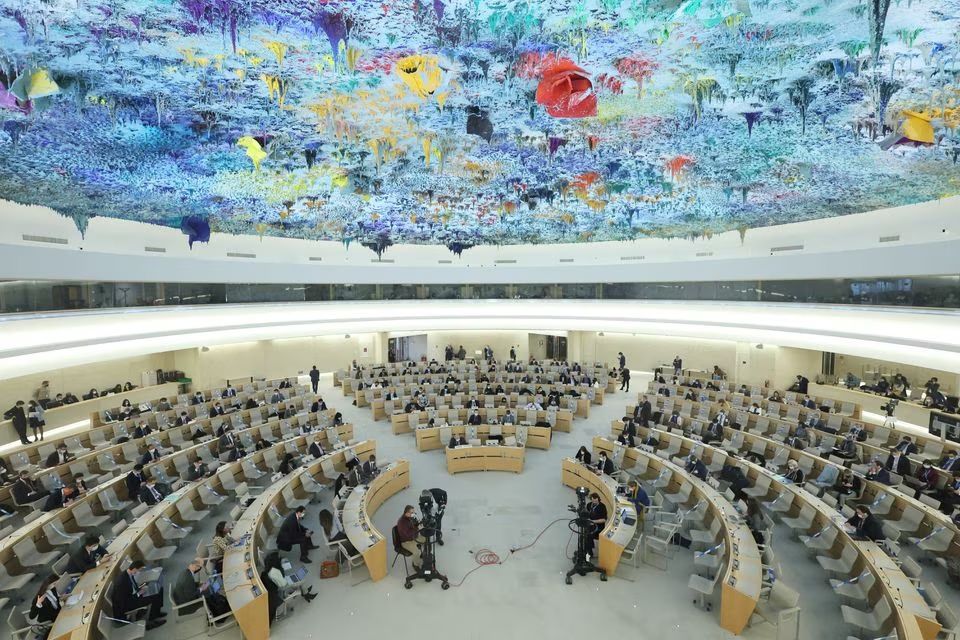
A meeting of the UNHRC at the UN Office in Geneva in March 2022. (Photo: Reuters)
A meeting of the UNHRC at the UN Office in Geneva in March 2022. (Photo: Reuters)
On April 3, 2006, based on discussions at the General Assembly, a resolution on the establishment of the Human Rights Council (UNHRC) was adopted. According to Resolution 60/251 of the General Assembly, the UNHRC has the following functions and tasks:
Promote human rights education and learning, as well as advisory services, technical assistance and capacity-building in member states; Promote the full implementation of human rights obligations undertaken by states; Serve as a forum for dialogue on thematic issues on all human rights; Undertake a universal periodic review of the fulfilment by each state of its human rights obligations and commitments.
Contribute, through dialogue and cooperation, towards the prevention of human rights violations and respond promptly to human rights emergencies; Work in close cooperation in the field of human rights with governments, regional organisations, national human rights institutions and civil society; Submit an annual report to the General Assembly.
Compared to the UNCHR, the UNHRC’s functions, tasks and modes of operation have changed significantly to create new powers for this agency in human rights activities. Accordingly, the UNHRC is an agency with a very important role in addressing human rights issues around the world.
The new election procedure was changed when the members of the UNHRC were elected in a secret ballot by the 193-member UN General Assembly. In addition, the new electoral mechanism allows several human rights NGOs to participate in the UNHRC's membership selection process. This method is to reduce the situation of voting out of respect, and the evil of "buying votes", which has existed in UNCHR.
In addition, the UNHRC is a United Nations body, whose mission is to promote and protect human rights around the world based on the Charter, with a status equivalent to ECOSOC. Not only that, UNHRC has been assigned a new task by the General Assembly, which is a periodic assessment of the compliance with human rights obligations and commitments of all countries, also known as the Universal Periodic Review (UPR), instead of selecting cases in several countries for consideration and voice, as before.
This new procedure increases the authority and effectiveness of the Human Rights Council while reducing discrimination and applying double standards, in assessing human rights between countries as before.
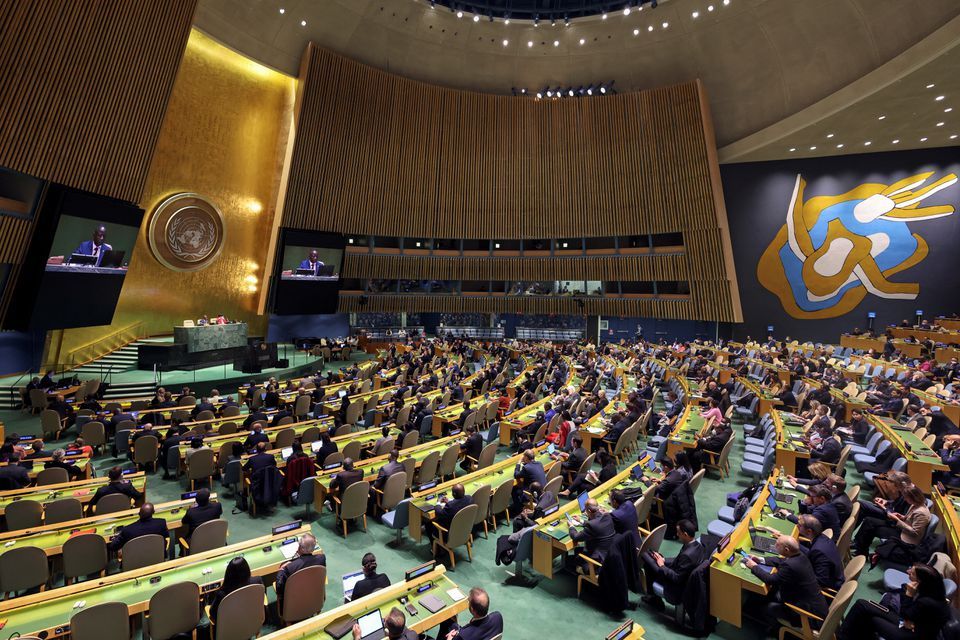
UNHRC is a United Nations body. In the photo: A general view of a session of the UN General Assembly. (Photo: Reuters)
UNHRC is a United Nations body. In the photo: A general view of a session of the UN General Assembly. (Photo: Reuters)
UNHRC is also the organisation that conducts a closed complaint settlement procedure. Under this procedure, the individual complainant and the country concerned are informed of the status of the complaint handling at key stages.
Like its predecessor - the UNCHR, the Human Rights Council is also tasked with conducting special investigative procedures, but has many improvements to increase their effectiveness. To enhance transparency, accountability and reliability in the investigation process, the Human Rights Council has also published a Code of Conduct for Special Procedures Mandate-holders.
The UNHRC also established the Advisory Committee (HRCAC) to serve as the “think tank” of the HRC. This Committee has many similarities with the Sub-Commission on the Promotion and Protection of Human Rights, but it has a working period of two sessions per year with a minimum duration of 10 days.
From the drastic reforms, the UNHRC has increasingly demonstrated its importance in the task of protecting and promoting human rights on a global scale. This also means that each member of UNHRC also has to work harder to take on these glorious but equally heavy responsibilities.
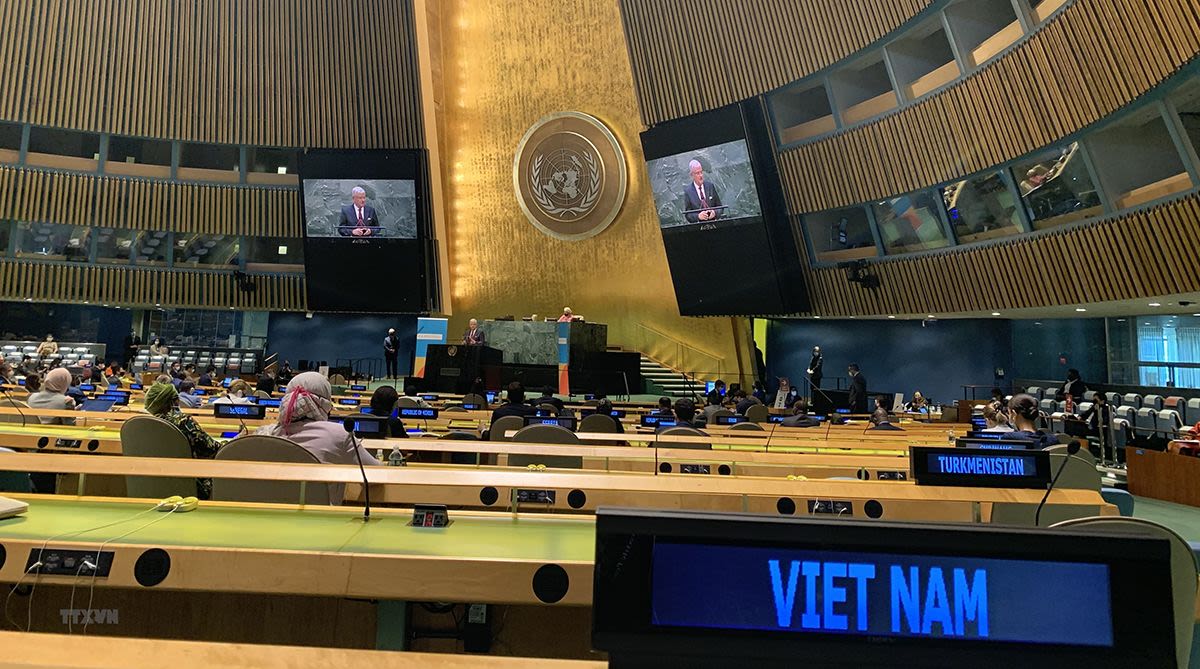
Vietnam attends the session of the United Nations General Assembly in New York, US. (Photo: VNA)
Vietnam attends the session of the United Nations General Assembly in New York, US. (Photo: VNA)
Vietnam's contributions to the protection and promotion of human rights at home and abroad
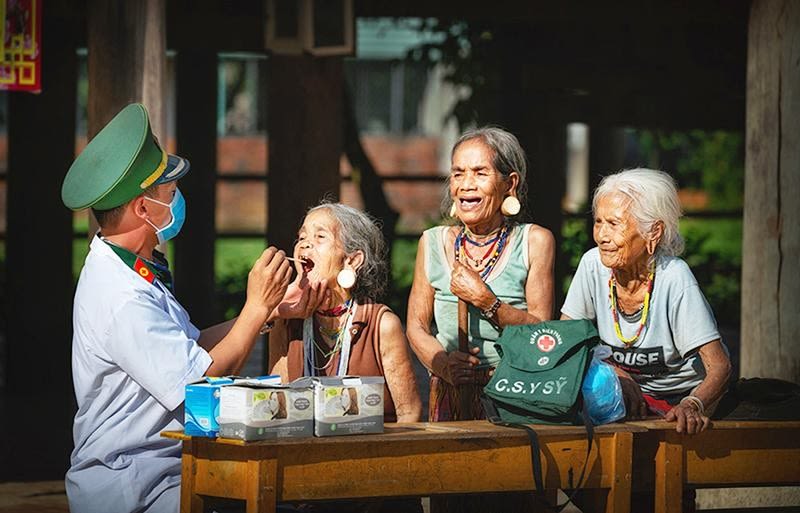
In fact, since joining the United Nations in 1977, Vietnam has always proved to be a responsible member for the protection and promotion of human rights in the international community, through participation in most UN conventions on human rights, including the International Covenant on Civil and Political Rights (ICCPR); the International Covenant on Economic; Social and Cultural Rights, the Convention on the Elimination of All Forms of Discrimination Against Women; the International Convention for the Elimination of All Forms of Racial Discrimination; the Convention on the Rights of the Child; the Convention on the Rights of Persons with Disabilities; and the Convention against Torture and Other Cruel, Inhuman or Degrading Treatment or Punishment.
By 2022, Vietnam has ratified and joined 7 out of 9 basic conventions of the United Nations on human rights; ratified and joined 25 ILO conventions, including 7 out of 8 basic conventions.
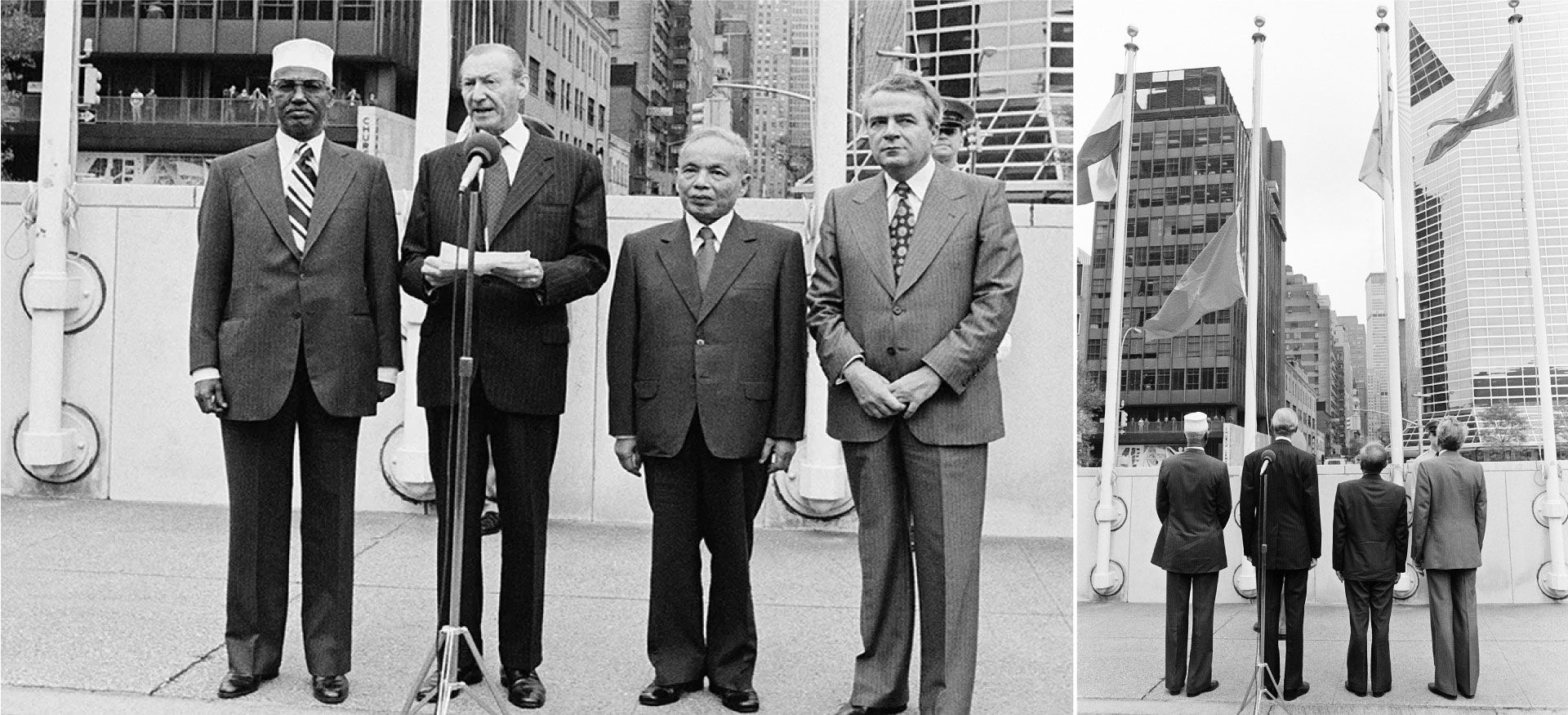
Vietnamese Deputy Prime Minister and Foreign Minister Nguyen Duy Trinh (second from right) attend the ceremony of hoisting the Vietnamese flag at the UN Headquarters in New York, US, September 21, 1977. (Photo: UN.ORG)
Vietnamese Deputy Prime Minister and Foreign Minister Nguyen Duy Trinh (second from right) attend the ceremony of hoisting the Vietnamese flag at the UN Headquarters in New York, US, September 21, 1977. (Photo: UN.ORG)
From this basis, Vietnam has gradually internalized and perfected the system of policies and laws on human rights, to ensure compatibility and suitability with the specific conditions of our country.
As a result, human rights have been regulated fully, specifically and comprehensively in Vietnam’s legal system. This is an important legal corridor to help the State improve its efficiency in the protection of human rights, towards achieving outstanding results, that have been recognised and highly valued by international friends.
However, before 2006, due to many objective reasons, including limitations in the operation mechanism of the UNCHR, Vietnam's position and voice in activities to promote and ensure human rights, have not received great attention. For this reason, the establishment of the Human Rights Council is of great significance, as an opportunity for Vietnam to strengthen the promotion and protection of human rights, at both international and national levels.
Over the past years, whether as an observer and participant of the Universal Periodic Review (UPR) mechanism or a member of the UNHRC, Vietnam has proved itself as a country respecting and ensuring human rights and advocating to increase contributions and boost international cooperation in this field.
Immediately after the first UPR cycle of the UNHRC took effect in 2008, the Vietnamese State urgently developed a National Report on periodically reviewing the implementation of human rights in Vietnam. A drafting committee has been established with the participation of agencies directly involved in the protection, implementation and promotion of human rights.
Vietnam also sent many delegations to learn about international experience in drafting UPR reports, such as attending a training workshop organised by the United Nations, sessions defending the UPR report at the Human Rights Council and organising domestic seminars, with the participation of experts from the UN and several countries that had defended the report, to introduce the UPR mechanism and their reporting experience.
In addition, the drafting committee also actively received valid opinions from the entire people, socio-political organisations, and local authorities, through consultation meetings and open dialogues.
In 2009, Vietnam implemented the UPR mechanism and accepted 96 recommendations out of 123 recommendations, made by the Human Rights Council. During the 2009-2014 period, the country took these recommendations seriously. The most obvious proof is that the National Assembly has drafted and promulgated many important legal documents to improve the legal framework on human rights. Particularly, the most prominent are the Regulations on human rights, as well as the rights and obligations of citizens in the 2013 Constitution.
Vietnam also supplemented and completed a series of legal documents to enhance freedom of speech and expression, such as the Law on Complaints, and the Law on Denunciations 2011, as well as protecting disadvantaged and vulnerable groups such as the promulgation of the Law on Persons with Disabilities.
In addition, with the consistency in policies and laws with people as the centre, the goal and the driving force of development, the State of Vietnam has obtained many great achievements in socioeconomic and cultural development, contributing to improving people's living standards and helping people to truly enjoy more and more human rights and citizenship.
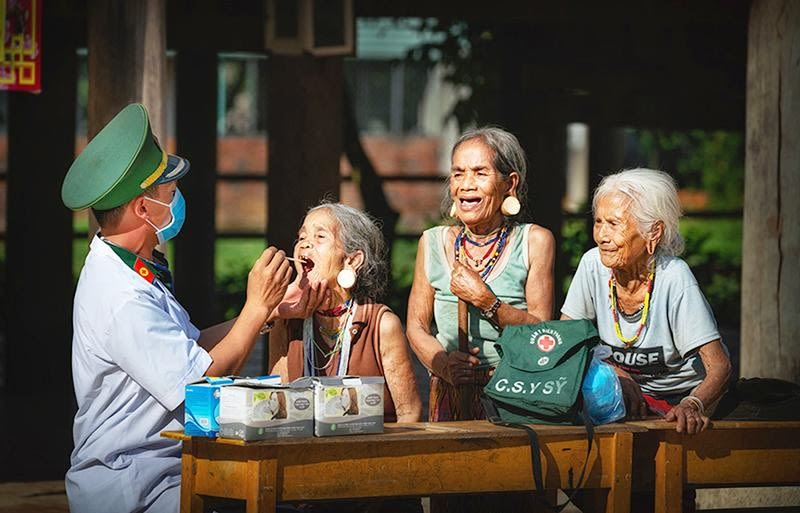
Military medical officers and soldiers visit and provide medical examinations for local people in the Central Highlands. (Photo: nhandan.vn)
Military medical officers and soldiers visit and provide medical examinations for local people in the Central Highlands. (Photo: nhandan.vn)
The active implementation of the foreign policy of independence, self-reliance, and proactive international integration, in the spirit of the Resolution of the 11th National Congress of the Communist Party of Vietnam and the Politburo’s Resolution No.22, on international integration, has contributed to affirming, consolidating and enhancing Vietnam's position and prestige in the international arena. During this period, Vietnam established a framework of strategic or comprehensive partnership, with all permanent members of the United Nations Security Council.
On November 12, 2013, the 68th UN General Assembly conducted a secret ballot to elect 14 new members of the Human Rights Council for the 2014-2016 tenure. Vietnam received 184 votes in favour, out of a total of 193 voting countries, to win the Human Rights Council election for the first time, with almost absolute support, the highest among 14 elected countries.
This is a worthy result recognising Vietnam's efforts and contributions to human rights in the country and globally. Moreover, Vietnam's election to the UNHRC also affirmed the victory of truth and rights when Vietnam smashed the plots and tricks of hostile forces, individuals and organisations, that lack goodwill to prevent blocking Vietnam from joining the international community, in human rights activities.
As a member of UNHRC for the 2014-2016 tenure, Vietnam continued to implement and publish Vietnam's Universal Periodic Review Report, in the second cycle from February 5-7, 2014, attracting the attention of domestic and foreign public opinion, and was highly appreciated by the international community. The report received 221 recommendations from 116 countries, and on that basis, Vietnam committed to absorb and clarify 182 recommendations, to ensure that human rights and fundamental freedoms continue to be promoted in the next period.
In the 2014-2018 period, Vietnam has supplemented, amended and issued 96 new legal documents and ordinances, related to the guarantee of human rights and citizens’ rights, following the 2013 Constitution, including important laws such as Penal Code 2015 (amended and supplemented in 2017), Civil Code 2015, Law on Referendum, Law on Cyber Information Security, Law on Belief and Religion, Law on Children 2016, Law on Press 2016, Law on Access to Information 2016 and Law on Legal Aid 2017.
Since the first review, Vietnam has issued many new and important policies, to allow all Vietnamese to fully enjoy human rights, especially in efforts to develop and fulfil sustainable development goals, ensuring development rights, rights for vulnerable groups, and rights of workers.
The Government of Vietnam has focused on research, thereby promulgating quality policies, with consistency, ensuring coverage, and targeting a wide range of audiences, especially vulnerable groups, such as children living in difficult circumstances, the elderly, the poor, and the disabled.
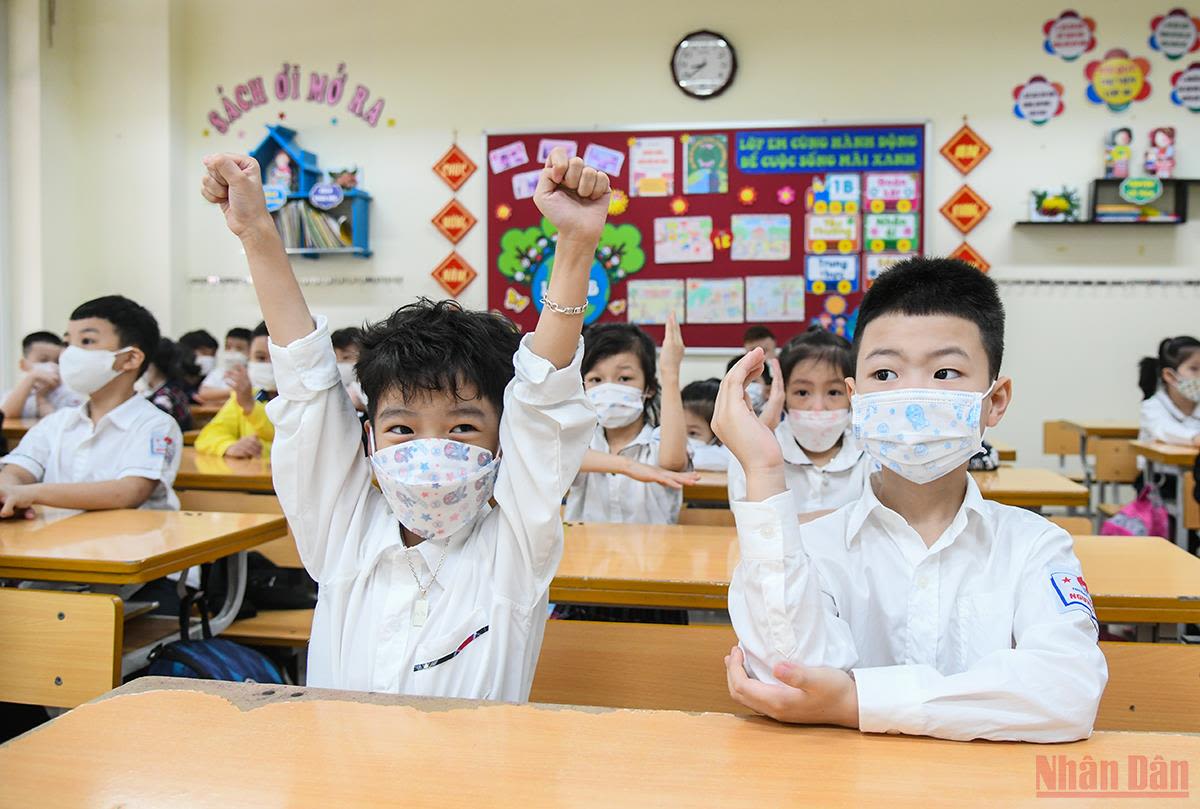
Students from a primary school in Hanoi. (Photo: Thanh Dat)
Students from a primary school in Hanoi. (Photo: Thanh Dat)
On the international scale, during the 2014-2018 period, Vietnam ratified the Convention against Torture and other Cruel, Inhuman or Degrading Treatment or Punishment, as well as the Convention on the Rights of Persons with Disabilities. Vietnam always attaches great importance to cooperation and dialogue with the Office of the United Nations High Commissioner for Human Rights and the Special Procedures of the Human Rights Council, following the functions and duties of the Special Procedures and the rules of procedure of the Human Rights Council, in the spirit of transparency, efficiency and fairness.
Vietnam has also participated responsibly in UN human rights mechanisms, in addition to the Human Rights Council (2014-2016), such as Socio-Economic Council (2016-2018), UNESCO Executive Council (2015-2019), and International Law Commission (2017-2021).
Since 2014, the Ministry of Defence has organised the launch ceremony of the Vietnam Department of Peacekeeping Operations and sent the first two officers on duty with the United Nations Peacekeeping Mission, in South Sudan.
From June 2014 to now, Vietnam has sent hundreds of officers and employees of the Ministry of Defence to the United Nations peacekeeping mission, at two Missions in the Republic of South Sudan (UMMISS) and the Republic of Central Africa, showing the maturity of the professional qualifications of Vietnamese officers and the growth of the Vietnamese peacekeeping force, which increasingly meets the requirements of UN peacekeeping operations. At the same time, Vietnam has demonstrated the political commitment of the Party and the State of Vietnam, as a responsible member of the international community, ready to join hands to solve global challenges, maintain a peaceful environment and stability for cooperation and development, in the region and the world.
Vietnam’s field hospitals in South Sudan not only participated in medical examination and treatment but also performed many humanitarian and philanthropic tasks, such as giving gifts and clothes to disadvantaged students and planting trees at schools.
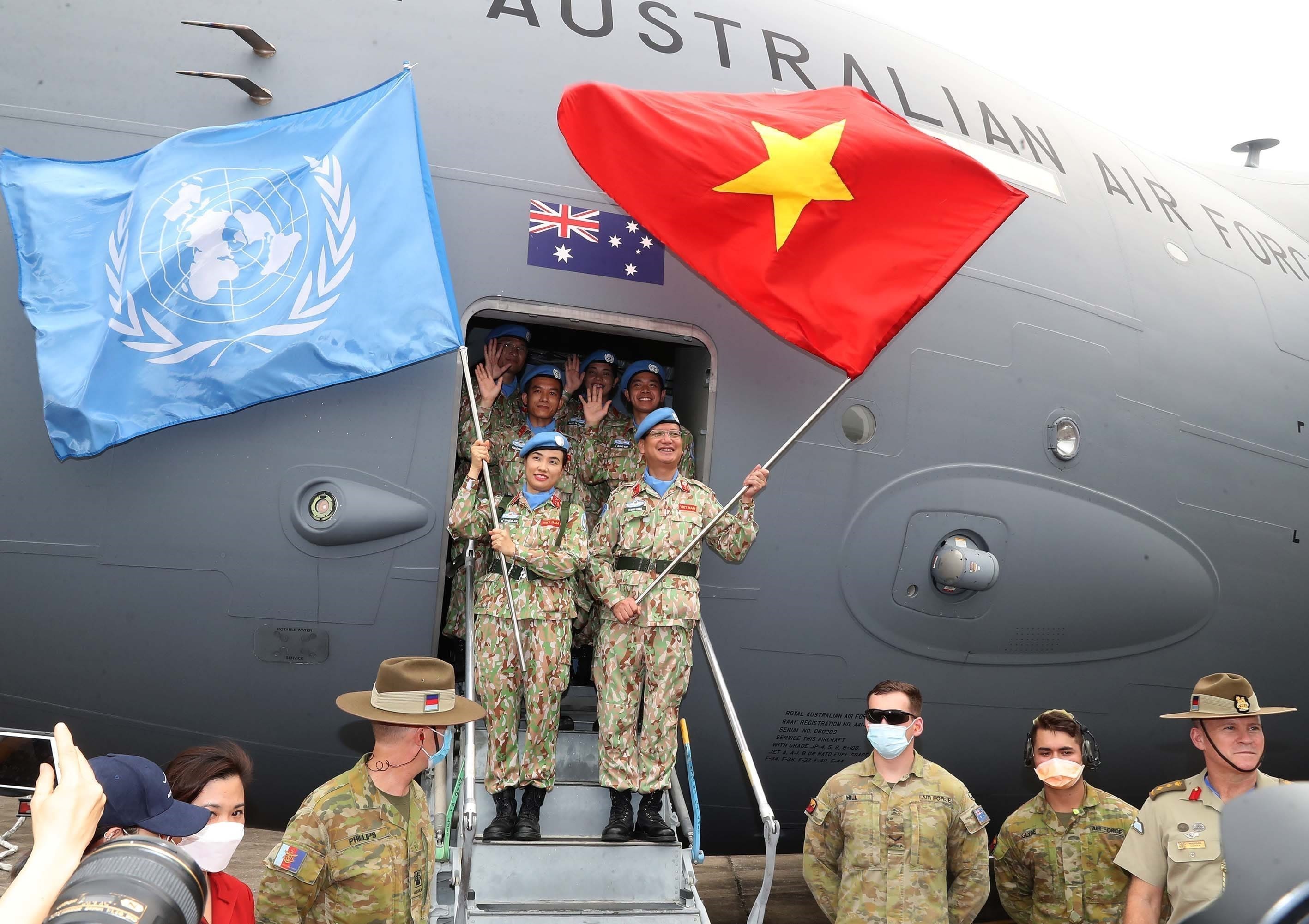
Officers of Vietnam's Engineering Unit Rotation 1 and Level-2 Field Hospital Rotation 4, set out to carry out the mission. (Photo: VNA)
Officers of Vietnam's Engineering Unit Rotation 1 and Level-2 Field Hospital Rotation 4, set out to carry out the mission. (Photo: VNA)
At the regional level, Vietnam and ASEAN countries have actively integrated human rights in all the pillars of the ASEAN community as “inclusive, people-oriented, people-centred” and ratified the ASEAN Convention against Trafficking in Persons, especially Women and Children, on December 13, 2016. In addition, Vietnam also signed bilateral agreements with neighbouring countries in the region, to cooperate in the prevention of cross-border human trafficking.
Moreover, during this period, Vietnam also cooperated with more than 1,000 foreign non-governmental organisations, to jointly find out initiatives, and solutions and actively contributed to the socio-economic development in Vietnam.
The UN Human Rights Council approved Vietnam’s National Report, under the Universal Periodic Review (UPR) Cycle III, dated November 29, 2019. Which, many countries appreciated Vietnam’s comprehensive achievements in the fields of formulating policy and legal documents, and linking economic development with social and sustainable development, as well as progress in human rights issues, such as migration, climate change, and rights for gay and transgender people.
Vietnam also agreed to 241 out of 291 recommendations, demonstrating the desire and determination of the Party and State, in protecting and promoting human rights. The Vietnamese Prime Minister issued Decision No.1975/QD-TTg on December 29, 2019, promulgating a Master Plan for the implementation of the UPR Cycle III.
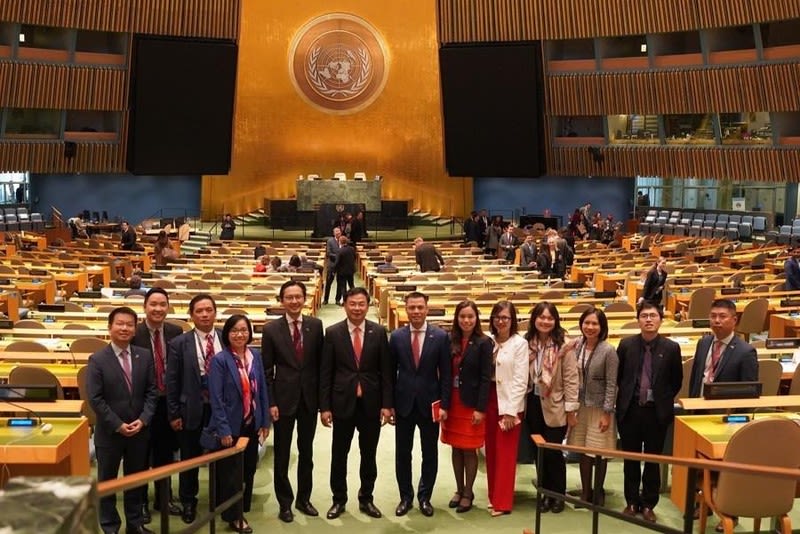
Photo: The Vietnamese delegation attend the meeting to vote and announce the results of the membership of the UN Human Rights Council. (Photo: THE Vietnamese Delegation to the United Nations)
Photo: The Vietnamese delegation attend the meeting to vote and announce the results of the membership of the UN Human Rights Council. (Photo: THE Vietnamese Delegation to the United Nations)
New strides of Vietnam in the field of human rights
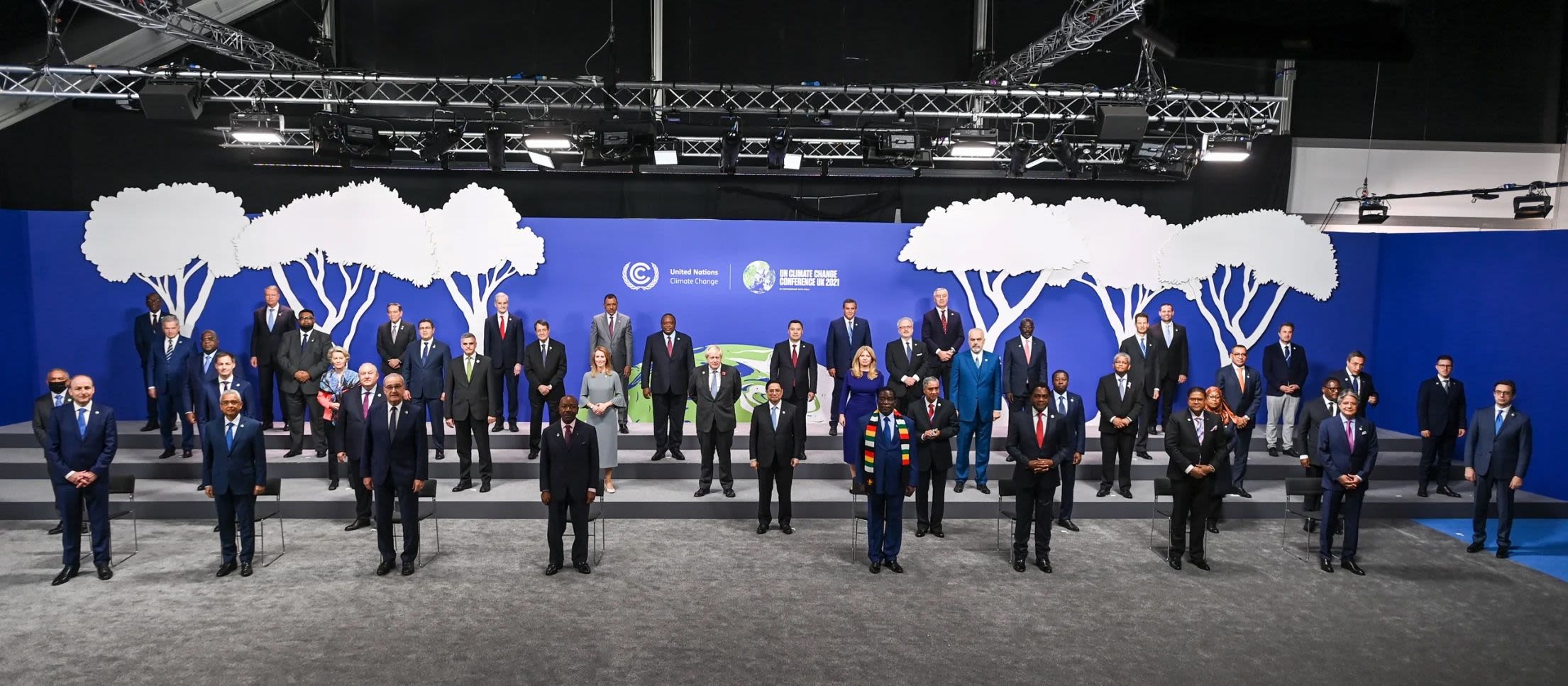
From 2019 until now, despite facing many difficulties due to the impact of the COVID-19 pandemic and unstable developments in the world and region, the Party and State have always paid attention to human rights. In particular, the issue of human rights during the pandemic was given top priority. Even at times, the Vietnamese Government accepted to sacrifice the country’s economic interests to protect the health and lives of the people, while ensuring safety and social stability to support workers and businesses facing difficulties, due to the pandemic, contributing to recovering production and business, minimising negative impacts of the pandemic, and ensuring the life and safety of workers.
In particular, Resolution No.68/NQ-CP, on several policies to support employees and employers affected by the COVID-19 pandemic, was implemented with 45.6 trillion VND provided for 36.5 million people across the country, 394,000 enterprises and 500,000 business households.
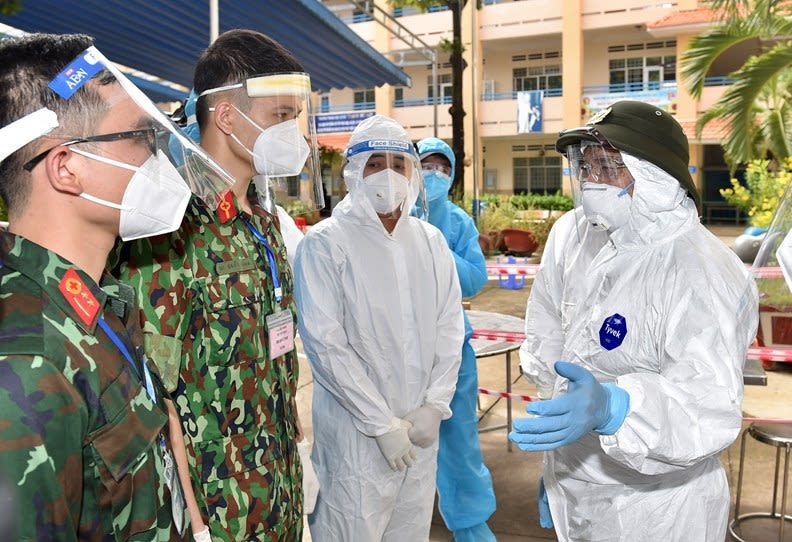
Prime Minister Pham Minh Chinh (far right) inspects a mobile medical station in Ho Chi Minh City, on August 26, 2021. (Photo: VGP)
Prime Minister Pham Minh Chinh (far right) inspects a mobile medical station in Ho Chi Minh City, on August 26, 2021. (Photo: VGP)
Even in the most difficult period, due to the impact of the COVID-19 pandemic, the poverty rate in Vietnam continued to decrease. The poverty rate in Vietnam dropped from 16.8% to 5% in the 2010-2020 period. It progresses from increasing productive employment, improving social services, and expanding the social welfare system.
However, not satisfied with the results achieved, Vietnam continues to apply the new multidimensional poverty line, as a tool for monitoring poverty and formulating policies. This means that more than 10 million people will benefit from the Government’s target programme on poverty reduction, in the 2021-2025 period.
In the international arena, Vietnam has made new strides in its efforts to implement the foreign policy of the 13th Party Congress and Directive 25 of the Secretariat, on promoting and elevating multilateral foreign relations to 2030. Vietnam continues affirming the position of a responsible country in the field of human rights, with active participation in global multilateral institutions.
Vietnam’s mark at the two climate summits COP26 and COP27 is undeniable. Vietnam delivered strong messages, initiatives and commitments, to strengthen international cooperation, to support those who are vulnerable to the impacts of climate change.
At COP26, Vietnam was one of the leading countries with the commitment to bring net emissions to zero by 2050, not build new coal power plants from 2030 and gradually phase out coal power by 2040. In addition, Vietnam also joined the Global Adaptation Coalition and pledged to reduce methane emissions by 30% by 2030.
That commitment was reaffirmed by Vietnam at COP27 by formulating and adopting a series of comprehensive measures for the energy transition.
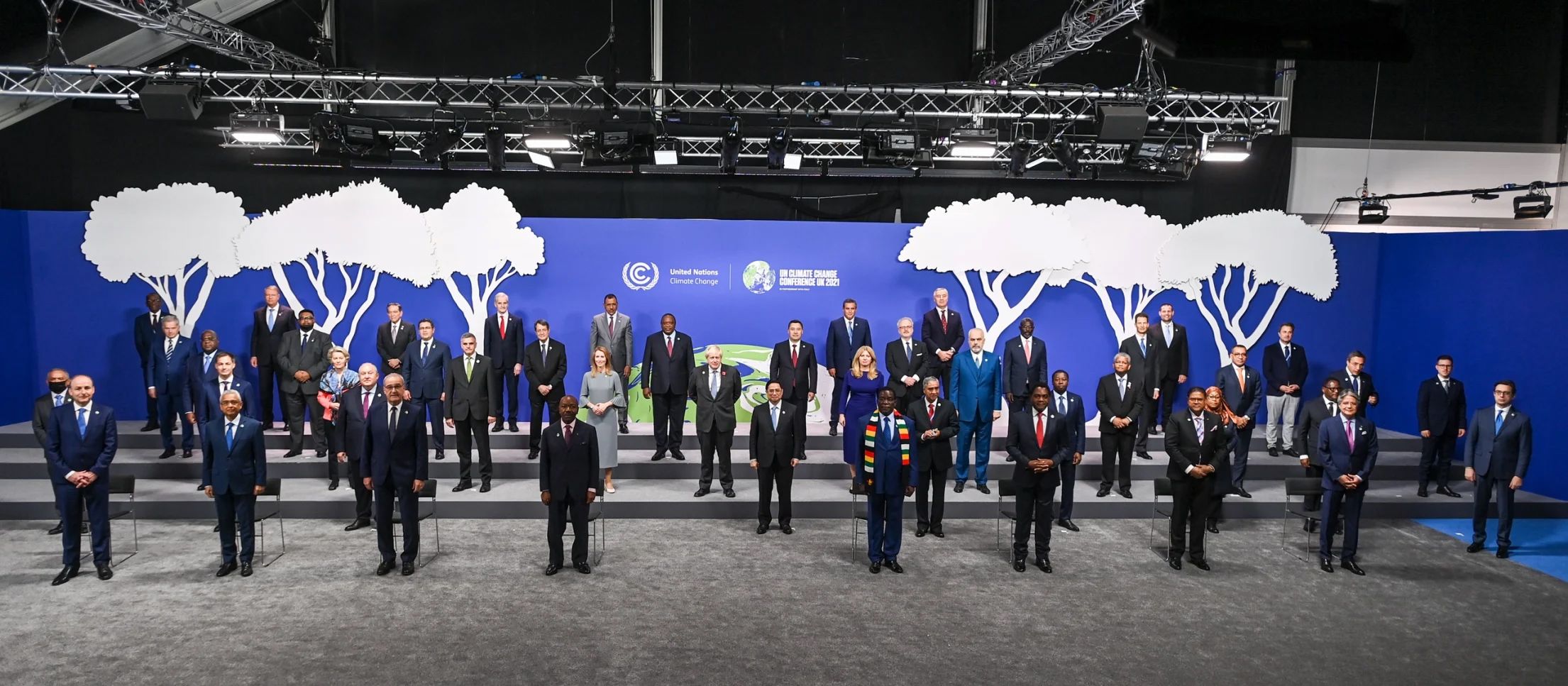
Prime Minister Pham Minh Chinh and world leaders at COP26. (Photo: British Government)
Prime Minister Pham Minh Chinh and world leaders at COP26. (Photo: British Government)
Difficulties caused by the COVID-19 pandemic cannot prevent Vietnam from implementing the UPR recommendations. On March 22, 2022, Vietnam launched its voluntary midterm report on the implementation of the UPR third cycle recommendations, which received high appreciation from representatives of United Nations’ agencies and diplomatic missions in our country. It should be noted that, to date, only 79 countries have submitted at least one voluntary midterm report. For the third cycle, Vietnam is among 20 countries that have developed such a report.
On September 13, 2022, Vietnam continued to make an impression at the 91st session of the UN Committee on the Rights of the Child (CRC), with outstanding achievements in law-building and policy-making, as well as measures to promote and advance the rights of the child, following the spirit of the UN Convention on the Rights of the Child.
The above-mentioned achievements made Vietnam win the trust of members of the Association of Southeast Asian Nations (ASEAN), to become the bloc’s candidate for a seat in the UNHCR for the 2023-2025 tenure. As a result, Vietnam has been elected to the UNHCR for the second time, surpassing the competition of many countries in the Asia-Pacific region.
With the trust of international friends, Vietnam is concurrently holding many important positions at UN agencies, such as the Postal Operations Council (POC) of the Universal Postal Union (UPU) for the 2022-2025 term, the International Atomic Energy Agency (IAEA) Board of Governors for the 2021-2023 term, and the International Law Commission (ILC) for the 2023-2027 tenure.
Following the UN motto “Respect-understanding, dialogue-cooperation, all human rights for all”, Vietnam has been making direct contributions to the protection and promotion of human rights worldwide, especially in terms of protecting vulnerable groups and ensuring human rights, in response to global issues such as climate change.
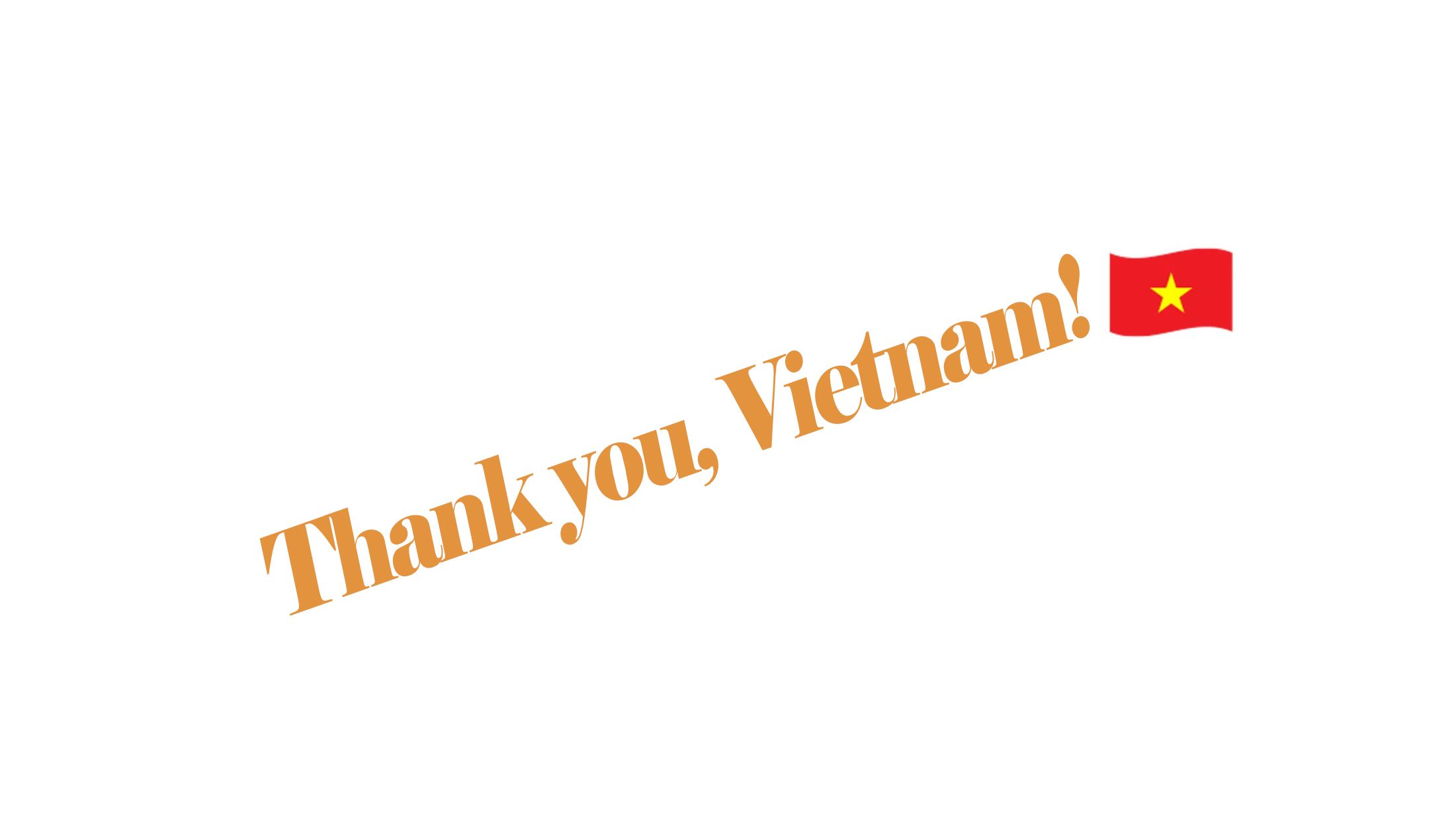
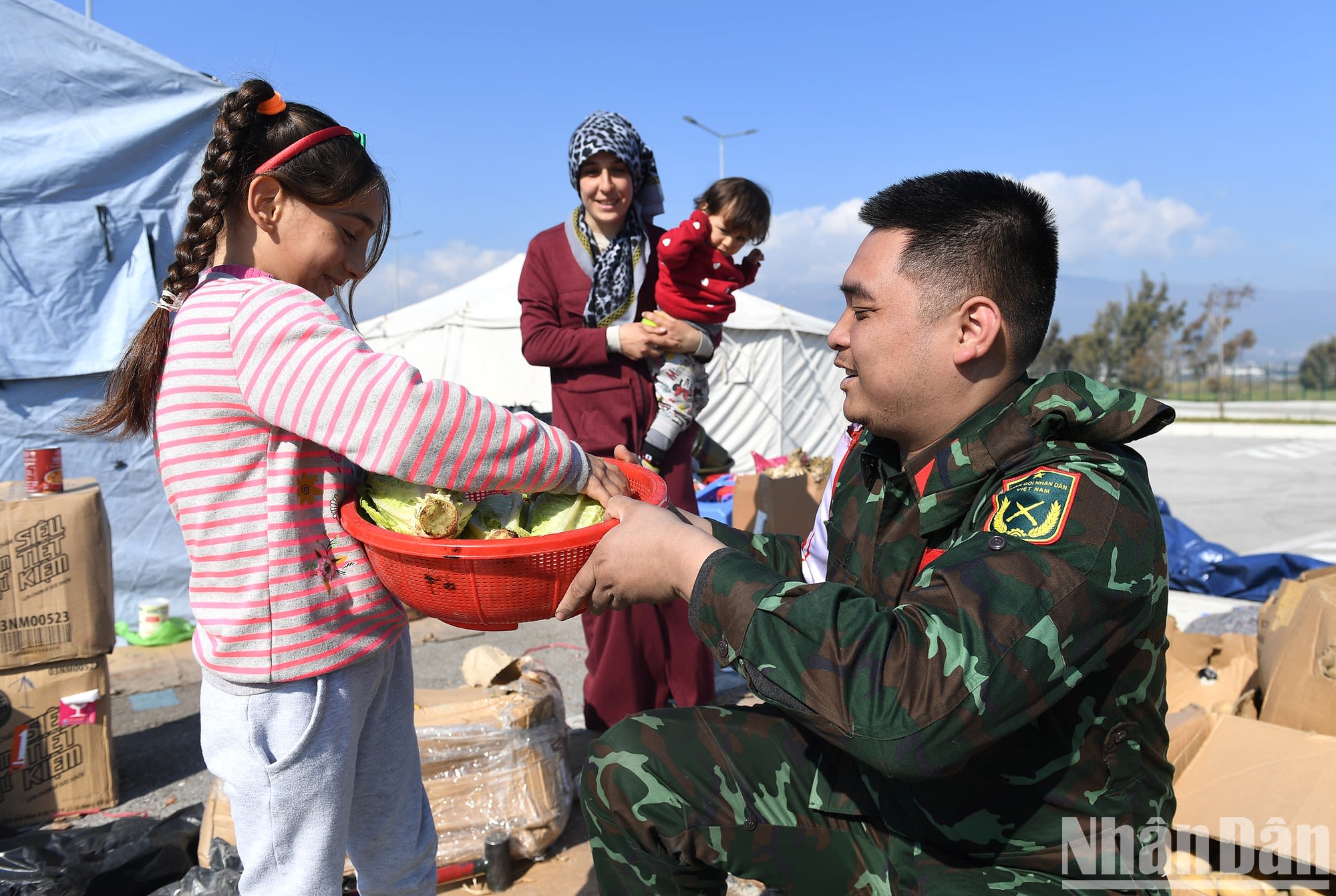



Turkish people's affection for members of the search and rescue team of the Vietnam People's Army (Photo: Thanh Dat)
Turkish people's affection for members of the search and rescue team of the Vietnam People's Army (Photo: Thanh Dat)

The search and rescue team of the Vietnam People's Army has left a beautiful impression of a humane, compassionate and wholehearted Vietnam on international friends. (Photo: Thanh Dat)
The search and rescue team of the Vietnam People's Army has left a beautiful impression of a humane, compassionate and wholehearted Vietnam on international friends. (Photo: Thanh Dat)
As a member of the UNHCR for the term 2023-2025, Vietnam has demonstrated its role in protecting and promoting human rights on a global scale, by providing urgent assistance to Turkey and Syria soon after the earthquake disaster occurred on February 6, 2023. On February 9, 2023, 100 soldiers from the Ministry of Defense and the Ministry of Public Security flew to Turkey, to join the search and rescue of earthquake victims.
In addition, Vietnam provided emergency aid worth 100,000 USD each, to Turkey and Syria, as well as dozens of tonnes of medical goods and food aid. The search and rescue teams of the Ministry of Public Security and the Vietnam People's Army raced against time to find every ray of hope, in the heavily damaged terrain in Turkey.
I would like to thank the Ministry of Defence and the Ministry of Public Security for their great contributions to Turkey. I want to send my thanks to the search and rescue teams, as well as their families, who have braved danger to support our country. I also want to convey my thanks to the Government of Vietnam for the solidarity that you have shown us during this difficult period.
“Thank you, Vietnam,” is also a familiar phrase that international friends give Vietnam, after its unremitting dedication to ensuring and promoting human rights on a global scale. At the same time, it becomes the driving force for the entire Party, people and army, to promote their strong will and aspiration in facilitating the cause of national renewal, enhancing the country's position and power, and affirming the national prestige in all fields.
Published: March 2023
Production managers: PHONG DIEP, TRUONG SON
Content: NGUYEN HAI DANG
Translation: NDO
Design: HOANG HA - PHAN ANH
